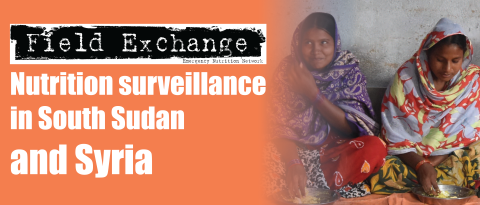Understanding how Rwanda created an enabling environment for improvements in nutrition
Research snapshot1
Rwanda has made substantial progress in reducing malnutrition, with reductions in stunting and anaemia of 14 and 15 percentage points respectively between 2005 and 2015. However, stunting reduction has been uneven across the country and prevalence remains very high at 38%. To facilitate further progress, a ‘stories of change’ study was conducted to identify drivers of stunting and anaemia reduction and potential barriers and facilitators to future progress in Rwanda. Qualitative methods included semi-structured interviews with 90 key stakeholders in nutrition, and 40 focus-group discussions with community members in five districts that experienced reduction in stunting and five that did not. Quantitative data from Demographic and Health Surveys (2005, 2010 and 2015) were also analysed.
Key drivers of change based on the qualitative data were: leadership, peace and security and decentralisation of government; political commitment to nutrition and multi-sector programming, facilitated by national policy (in particular the National Food and Nutrition Policy 2013-2018) and nutrition coordination mechanisms; and increased provision of community-level, nutrition-related services and programmes, especially in health and agriculture (e.g. nutrition counselling, antenatal care, kitchen-garden programmes). Quantitative data revealed that factors that contributed most to reduced stunting were related to maternal health, including quality of prenatal visits; proportion of women giving birth at a health facility; and the number of children a woman had. Household wealth, parental education and insurance coverage were also important.
Districts without reduced stunting had weaker horizontal and vertical coherence of policy and programming; less robust, multi-sector and integrated monitoring and evaluation for nutrition; and decreased food availability at community level. For further improvements, Rwanda must keep up the momentum of positive change and further strengthen existing plans, systems and approaches. Remaining challenges must also be addressed, including those around financial constraints; gaps in policy; institutional, horizontal and vertical coherence and monitoring and evaluation for nutrition; and community-level issues such as poverty, food security, gender relations and health, nutrition, and water, sanitation and hygiene practices.
Endnotes
1Iruhiriye, Elyse; Olney, Deanna K.; Ramani, Gayathri V.; Heckert, Jessica; Niyongira, Emmanuel; and Frongillo, Edward A. 2019. Stories of Change: Rwanda: Understanding how Rwanda created an enabling environment for improvements in nutrition and the challenges that remain. Stories of Change Rwanda Program Brief 1. Washington, DC: International Food Policy Research Institute (IFPRI). https://doi.org/10.2499/p15738coll2.133378


